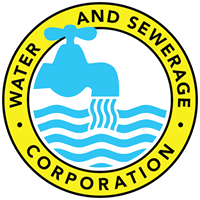Press
2,350 Homes, Firms Get First Piped Water
Some 2,350 Bahamian homes and businesses will receive piped water for the first time due to a $42 million project, which aims to “duplicate” a model that slashed Family Island water leaks by 50 percentage points.
Robert Deal, the Water & Sewerage Corporation’s (WSC) deputy general manager, told Tribune Business that the Water Supply Improvement Project would also provide 1,320 Family Island homes and businesses with improved water supply – taking the number of customers set to benefit to 3,670.
The project, which is being part financed by a $28 million Caribbean Development Bank (CDB) loan, also aims to reduce the 45 per cent of water supplies that are lost from the Corporation’s system before they reach Family Island customers.
With Family Island water purchases exceeding $7 million per annum, Mr Deal said the Corporation planned to use the project to replicate a model – pioneered in south Eleuthera this year – that slashed system water losses from 60 per cent to just 10 per cent.
Outlining the potential benefits to Bahamian consumers, Mr Deal said via e-mailed replies to Tribune Business’s questions: “The principal objective of the project is to extend piped, potable water supply to homes in three communities in New Providence and several communities in the Family Islands who do not presently have access to piped, potable water. “It is estimated that approximately 1,000 new customers (homes – all residential communities) in New Providence, and approximately 1,350 new customers (homes/businesses) in the Family Islands, will be provided with piped, potable water for the first time.“A further approximately 1,320 existing customers (homes/businesses) in the Family Islands will benefit from improvements to their existing water supply systems.”
Tribune Business understands that the New Providence communities targeted for the project include Pinewood Gardens and Bozine Town.
Mr Deal said the other islands set to benefit include Cat Island, Crooked Island, Eleuthera, Long Island, San Salvador and South Andros, with systems infrastructure “designed to withstand the vulnerabilities associated with climate change”.
The project also includes technical assistance to enable the Water & Sewerage Corporation to adapt to climate change, analyse and implement renewable energy systems, and boost public education.
When it came to water lost from the Corporation’s distribution system, known as non-revenue water (NRW), Mr Deal told Tribune Business: “Family Island water purchases are in excess of $7 million per annum, and Family Island non-revenue water (NRW) is estimated at approximately 45 per cent.
“Earlier this year, the Corporation executed a very successful NRW pilot project in our Waterford supply area in South Eleuthera using our in-house personnel, where we were able to reduce NRW from approximately 60 per cent to approximately 10 per cent. “It is our plan to aggressively duplicate this model using in-house resources in all of our desalinated water supplied Family Island communities,” he added.
“While Family Island NRW is a challenge for WSC, and WSC is actively addressing it, this project is not primarily a NRW project, and therefore no specific NRW targets have been established with respect to this project.”
Mr Deal said the project would involve the replacement of the Corporation’s infrastructure in communities that include The Banks Road, Central Eleuthera; Rock Sound, South Eleuthera; and High Rock and Long Bay, South Andros.
“This will benefit approximately 1,320 existing customers,” he added.
The project is designed to facilitate the acquisition of up to 30 acres, upon which reverse osmosis and other water production facilities will be located.
“The 30 acres is an upper limit, and the actual required may be a bit less,” Mr Deal added. “These sites are for new desalinated plants for the following islands – Cat Island, Crooked Island and South Andros.”
The CDB loan includes an allocation of $12.4 million in resources provided by the European Investment Bank to CDB under the Climate Action Line of Credit. The Bahamian government will contribute $13.3 million to the project.

